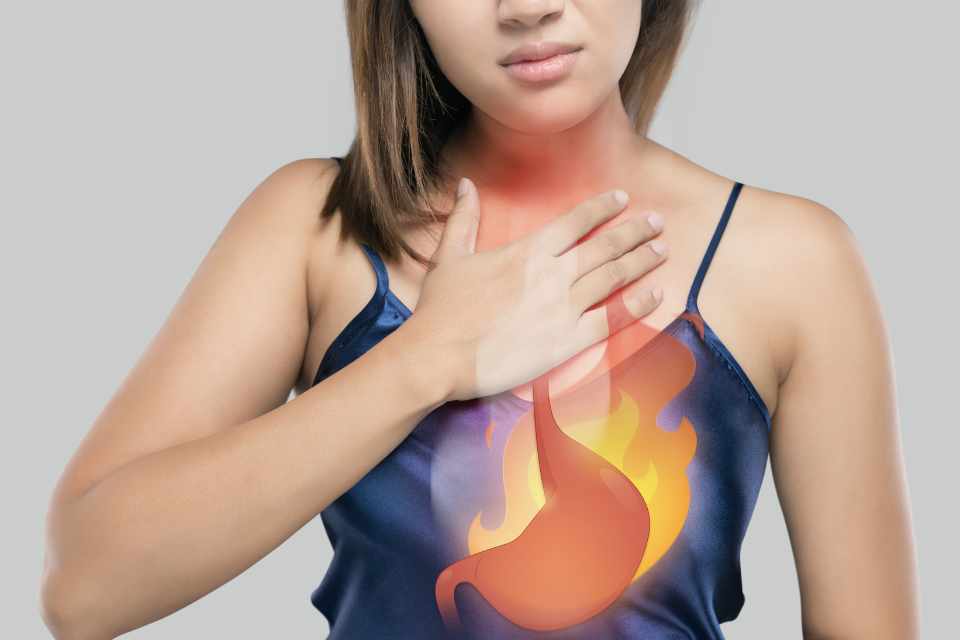Do you know the difference between heartburn and indigestion? What about acid reflux or gastroesophageal reflux disease? This article should help make things more transparent if you’re not sure. All these tummy troubles have something in common – a burning pain in the chest. Knowing the difference between these common problems can mean finding a remedy faster.
What is Heartburn?
Heartburn is a symptom, which means that it is something that you experience—the actual sensation of burning pain or discomfort in your chest or throat. The problem is that every symptom can have multiple causes.
Heartburn is most often a symptom of a digestive disorder. The burning sensation is due to acid regurgitation from the stomach, known as acid reflux.
While the stomach lining is protected from a high acidity level, the oesophagus (the food pipe connecting the mouth to the stomach) is not. So, persistent heartburn caused by stomach acid reflux can damage the tissues in the oesophagus and throat.
Rarely, severe heartburn can be confused with the severe chest pain of heart problems such as angina or even a heart attack. Occasional episodes of heartburn are unpleasant, but it is crucial to have persistent symptoms or severe symptoms checked.
Eating too quickly or overeating can make heartburn more likely. Anything that encourages gastric acid to enter the oesophagus or even regurgitation of food can cause heartburn from time to time. For instance, heartburn during pregnancy is common. But wearing tight clothing or tight belts can also create backpressure and, therefore, reflux.
Is heartburn the same as indigestion?
Indigestion and heartburn are both symptoms. But while heartburn describes the burning sensation in the chest, the term indigestion can include other symptoms. Upper abdominal pain or discomfort, the feeling of being overfull after eating, frequent belching, nausea or bloating and heartburn are all common symptoms of indigestion.
Heartburn is also sometimes referred to as acid indigestion. However, you may have indigestion without having heartburn.
Indigestion means that your digestion is under par. Some types of foods are indeed more challenging to digest. For instance, many people find fried foods or fatty foods hard to digest. If your digestion is weak, you may find that certain foods trigger your heartburn or indigestion. Or, these symptoms may relate to an underlying condition such as an infection, ulcer, or even a gallbladder issue. Sometimes it takes a bit of detective work to find out the underlying cause.
What is acid reflux?
As I mentioned before, acid reflux is the name for regurgitation of the stomach contents into the oesophagus. Acidic fluid or food from the stomach can irritate or damage the oesophagus, which becomes narrow and inflamed. Such chronic irritation and inflammation lead to the diagnosed disease, chronic acid reflux or gastroesophageal reflux disease (GORD/GERD).
Again, heartburn is usually a symptom of acid reflux disease. Still, you can suffer from long-term GERD even if you do not have heartburn. Other signs and symptoms of gastroesophageal reflux disease include a bitter taste at the back of the mouth, a chronic cough or persistent dry cough, a hoarse voice or a dry mouth. Episodes of reflux are often worse when lying down or sometimes even with bending over after eating a big meal.
If you suspect that you have these acid reflux symptoms, it is essential to check in with your healthcare provider. The strong acid from the stomach can cause long term damage to the oesophagus if not addressed.
Other symptoms
So, heartburn is just one of the typical symptoms of acid reflux. The other symptoms include nausea and vomiting, abdominal pain, diarrhoea and bloating. Once again, these symptoms can all be caused by other digestive problems. The similarities between each of the causes and the symptoms can lead to misdiagnosis or delayed diagnosis.
However, most people with heartburn or indigestion will associate their symptoms with overeating the wrong foods or drinks. A situation that is not difficult to resolve.
Contact your local herbalist if you have heartburn or indigestion and want to discuss different lifestyle and dietary choices and natural remedies to counter the problem.
You might also like my post:
4 ways to relieve acid reflux naturally








0 Comments